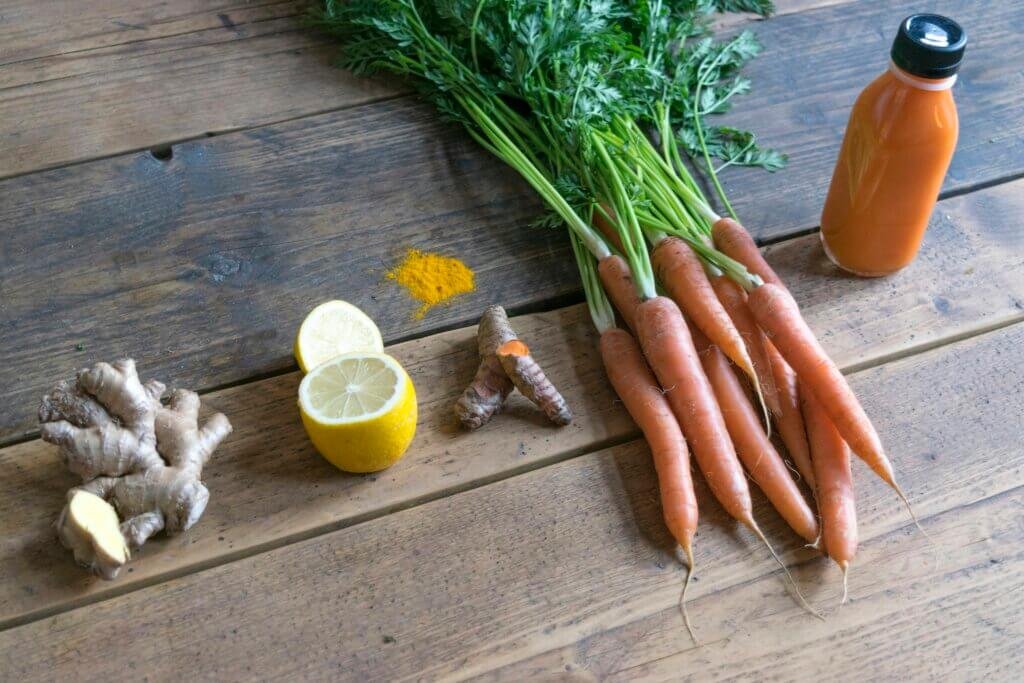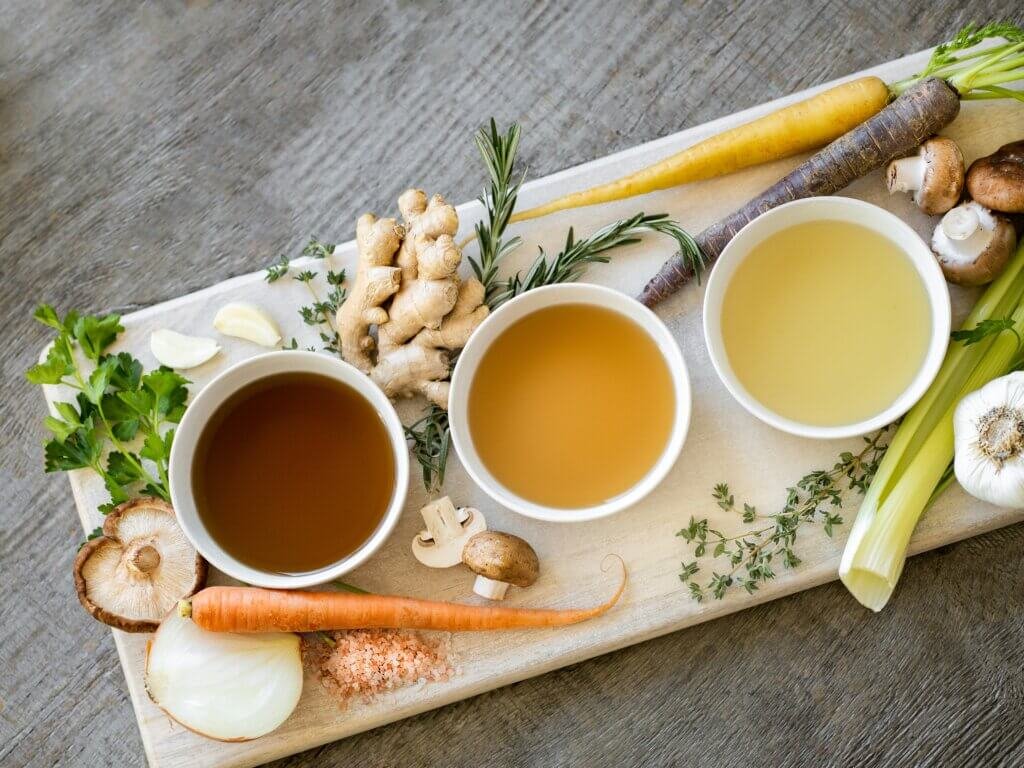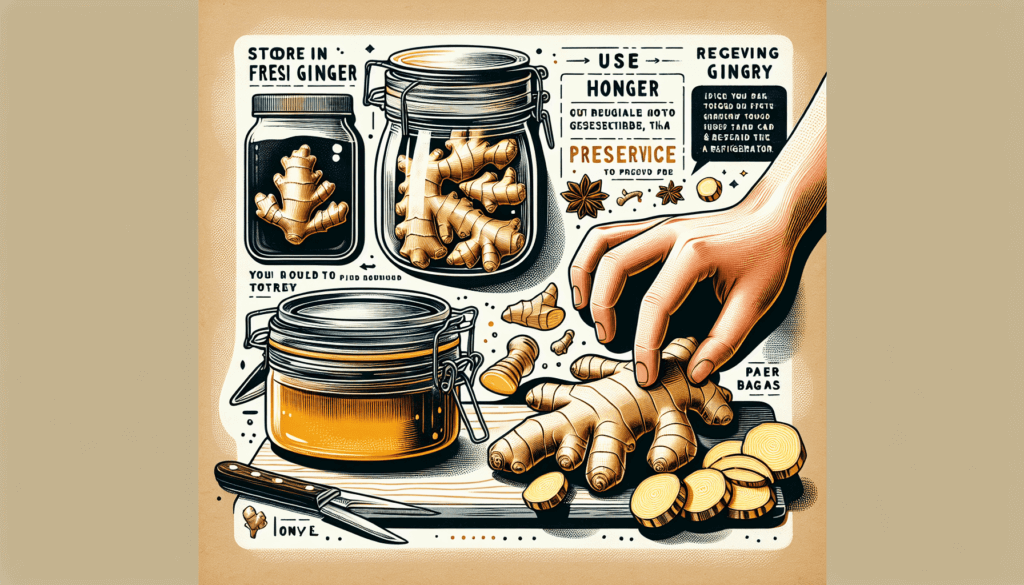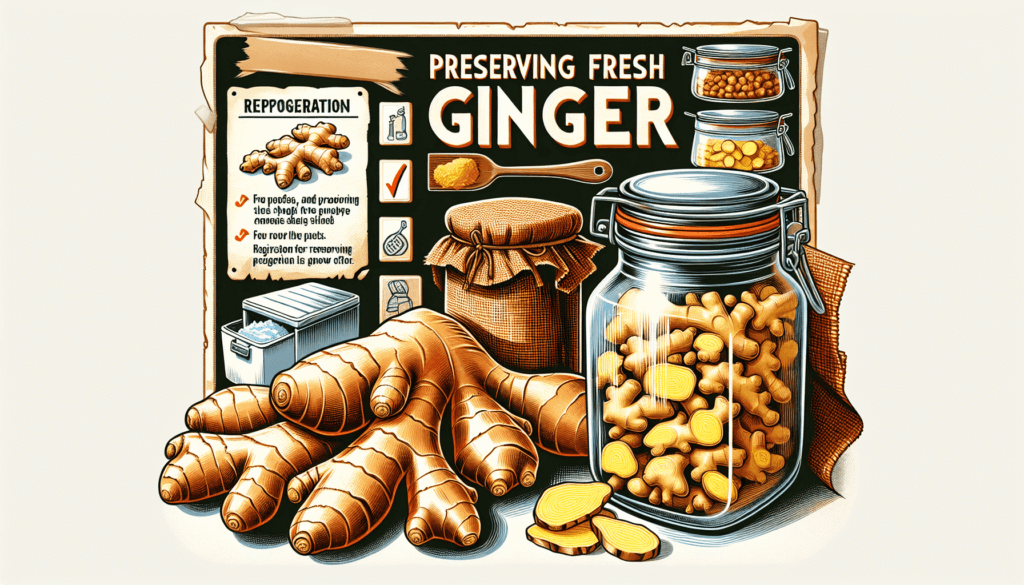You love adding a spicy kick to your dishes with fresh ginger, but sometimes you find yourself with more ginger than you can use at once. Instead of letting it go to waste, have you ever wondered how to store and preserve this flavorful root? Well, wonder no more! In this article, you will discover the best methods to store and preserve fresh ginger, ensuring that you can enjoy its zesty goodness for weeks to come. From refrigeration to freezing, we’ve got you covered with practical tips and tricks that will keep your ginger fresh and ready to enhance your culinary creations. So, let’s jump right in and learn how to make your ginger last longer!

Storing in the Refrigerator
When it comes to storing fresh ginger in the refrigerator, it’s important to take a few simple steps to ensure its freshness and longevity. First, wrap the ginger in paper towels to absorb any excess moisture and help prevent mold. Next, place the wrapped ginger in a plastic bag, ensuring that it is tightly sealed to maintain its freshness. Finally, store the bag of ginger in the crisper drawer of your refrigerator, where it will stay cool and dry.
Freezing Ginger
If you find yourself with an abundance of fresh ginger and want to store it for longer periods, freezing is a great option. To freeze ginger, start by peeling and grating it into small pieces. Once grated, portion the ginger into small containers or ice cube trays for easy measurement and use in future recipes. Ensure the containers or trays are tightly sealed to prevent freezer burn. After that, simply place the ginger-filled containers in the freezer, where it can be stored for several months.
Storing in the Pantry
For those who prefer to store ginger in their pantry, it’s essential to keep it in a specific way to maintain its freshness. First, store the ginger in a mesh bag, allowing for proper airflow and preventing excess moisture build-up. This will help to prevent the ginger from spoiling. Additionally, find a cool, dark area in your pantry to store the ginger. Avoid placing it near heat sources or in direct sunlight, as this can cause it to deteriorate quickly.
Storing in the Freezer
When it comes to storing ginger in the freezer, there are a few steps you can take to ensure its optimal preservation. Instead of peeling and grating the ginger like when freezing it, leave it whole. Then, place the ginger in an airtight bag, removing any excess air before sealing. This will help prevent the ginger from developing freezer burn or absorbing any off-flavors. Finally, store the ginger in the freezer, where it can be kept for several months.

Making Ginger Paste
If you’re a fan of using ginger paste in your recipes, you can easily make it at home and store it for future use. To make ginger paste, start by peeling and grating the ginger. Once grated, mix it with a small amount of oil and salt. The oil helps to preserve the ginger while the salt adds flavor and acts as a natural preservative. To store the ginger paste, transfer it to a sterilized jar and keep it in the refrigerator for up to a month.
Dehydrating Ginger
Dehydrating ginger is a great way to preserve it and enjoy its unique flavor all year round. To dehydrate ginger, start by peeling and slicing it into thin slices. This will help promote even drying. Spread the ginger slices on a baking sheet or dehydrator tray and dry them until they become crisp and brittle. Once completely dry, transfer the ginger slices to a sealed container to prevent moisture absorption. Stored properly, dehydrated ginger can last for months.

Pickling Ginger
Pickling ginger not only preserves it but also adds a tangy and slightly sweet flavor to the root. To pickle ginger, begin by peeling and slicing it into thin strips. Next, prepare a pickling solution consisting of vinegar, sugar, and salt. Submerge the ginger slices in the pickling solution and store them in a sterilized jar. The pickled ginger can be stored in the refrigerator and will develop its flavors over time, making it a delightful addition to various dishes.
Using Ginger Powder
Ginger powder is a convenient and versatile way to incorporate the distinct flavor of ginger into your cooking. To make ginger powder, start by peeling and drying the ginger. Once completely dry, grind the ginger into a fine powder using a spice grinder or mortar and pestle. Transfer the ginger powder to an airtight container to preserve its freshness and store it in a cool, dry place. Properly stored ginger powder can maintain its flavor for several months.

Preserving in Vinegar
Preserving ginger in vinegar provides both flavor and longevity to the root. To preserve ginger in vinegar, peel and slice it into thin pieces. Place the ginger slices in a jar and cover them with vinegar, ensuring that all the ginger is submerged. Seal the jar tightly and store it in the refrigerator, where the ginger will retain its flavor and texture for an extended period. The pickled ginger can be used in various recipes or enjoyed as a tangy condiment.
Storing in Alcohol
If you want to store ginger in a way that adds a unique twist to its flavor profile, storing it in alcohol is a great option. Begin by peeling and slicing the ginger into thin pieces. Then, cover the ginger slices with alcohol, such as vodka or rum, in a jar. Make sure all the ginger is submerged in the alcohol. Seal the jar tightly and store it in a cool, dark place, such as a pantry or cellar. The ginger will infuse with the alcohol, creating a flavorful ingredient that can be used in both cocktails and culinary creations.
In conclusion, fresh ginger can be stored and preserved in various ways to ensure its longevity and maintain its distinctive flavor. Whether you choose to store it in the refrigerator, the freezer, the pantry, or preserve it through techniques like pickling or dehydrating, there’s a method that suits your needs and preferences. By following the steps outlined for each method, you can enjoy the aromatic and spicy goodness of ginger in your recipes all year round. Experiment with these storage and preservation techniques to make the most of this versatile ingredient and elevate the flavors in your culinary creations.



